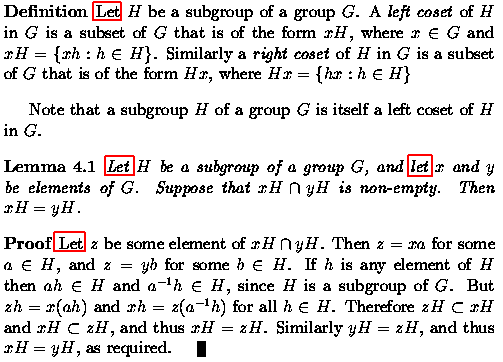A few weeks ago, I went on Udemy course on Swift, the instructor mentioned that constants are called let in Swift because it's standard in OOP (JavaScript uses it for example).
I know this may seem like a really stupid question, but I think it is confusing that constants are declared by let. As, let doesn't stand for constant.
Where did the let keyword come from?


letis used specifically for constants?letto declare variables is Javascript, but in Javascript a variable declared withletis not in fact a constant.